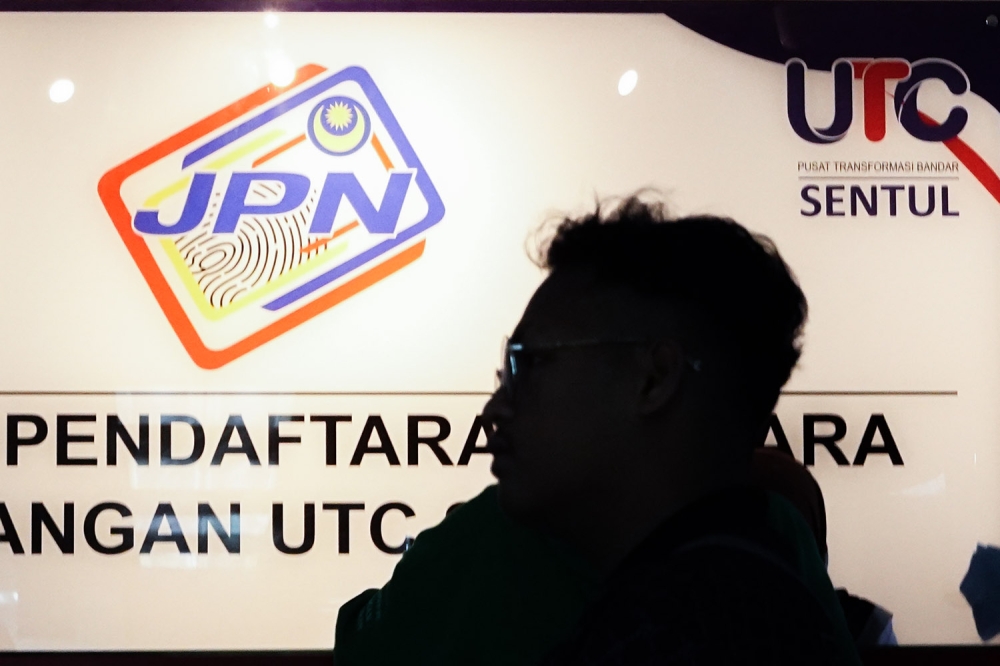

KUALA LUMPUR, July 16 — Stateless persons in Malaysia can still legally marry even without having a Malaysian identity card (the blue IC otherwise known as MyKad), as Malaysian authorities can register such marriages without an IC, the High Court has said in a recent groundbreaking decision.
Why is this High Court judgment so important?
- In the landmark case involving one Perak family, the stateless women could not register their marriages to Malaysians, causing three generations to be stateless.
- The High Court ruled that stateless persons in Malaysia can legally marry. This can prevent their children from inheriting statelessness.
- High Court rules Malaysia’s laws actually do not require having an IC for a marriage to be registered.
Quick facts about this case: The cycle of statelessness kept going on with ‘no IC’
On May 20, the High Court in Taiping ruled in favour of a Perak family (46-year-old Kamaladevi Kanniappan, her two children and her three grandchildren), declaring these three generations of stateless persons as Malaysians.
The High Court also said Kamaladevi and her daughter T have the right to register their marriages with the NRD.
While Kamaladevi had Malaysian grandparents, her mother Letchimee only had a birth certificate and did not have a Malaysian identity card up to her death.
Because of this, she could not register her marriage to a Malaysian man, and all her three children — including Kamaladevi — became stateless.
This is because under Malaysia’s laws as applied by the government, children who are born in an unregistered marriage are considered illegitimate, and their citizenship status can only follow their mother’s.
So even if they have a Malaysian father, they will not automatically be Malaysians, and have to apply for citizenship (with no guarantees of approval).
The next generations all suffered the exact same fate because Kamaladevi and her daughter had the same problem: Kamaladevi’s children and grandchildren are also stateless now.
Can marriages in Malaysia be registered without Malaysian ICs? What the judge said
All non-Muslim marriages (from March 1, 1982 onwards) must be solemnised and registered under the Law Reform (Marriage and Divorce) Act 1976 to be valid in Malaysia.
A valid marriage between a stateless woman and a Malaysian man would mean their children are not illegitimate and can inherit the father’s Malaysian citizenship.
Here’s a quick summary of the High Court in Taiping’s judicial commissioner Noor Ruwena Binti Md. Nurdin’s 41-page judgment, which was released on July 8:
During the court case, the Perak family’s lawyers New Sin Yew and Shugan Raman said every person — and not just Malaysians — has the right to register their marriages under the 1976 law.
The Perak family’s lawyers also said that the government’s own internal circular ("Arahan Jabatan Pendaftaran Negara Bil. 6/2021”) said personal identification documents are not a condition for marriages to be registered.
The judge agreed that the 1976 law does not prohibit a stateless person’s marriage solemnisation and registration.
The judge referred to the 1976 law’s Sections 22 to 25 (which covers solemnisation and registration of marriages).
"There is also nothing in the 1976 Act which requires firstly that a person have to be issued an IC before his marriage can be solemnised or registered,” the judge said.
The judge said the NRD should not have refused to register the marriages of Kamaladevi’s mother, Kamaladevi and her daughter to their Malaysian husbands just because the women had no ICs, and noted that their children would have been Malaysians if NRD had registered those marriages.
The judge said the reason why Kamaladevi’s mother’s marriage was not registered was "most likely due to illiteracy and lack of awareness and understanding of the law”.
Citizenship and education as way to a better life
The judge said the Perak family was trapped in a "vicious cycle” of generational statelessness and hardship, even though they were born in Malaysia, because they did not have ICs and their marriages were not registered.
(Previously in a court document, Kamaladevi had said her family’s hardship as stateless persons included not having opportunities for proper education, limited job prospects due to discrimination, and higher medical fees.)
The judge said the government’s denial and continued denial of the Perak family’s application for Malaysian citizenship had violated their right to life under the Federal Constitution’s Article 5, as citizenship is a fundamental and protected right.
Having Malaysian citizenship would open up doors of opportunities, and would enable a person to be on a level playing field with other Malaysians to seek a "better life” in Malaysia instead of "merely existing in poverty, struggling with hardships and leading a depressing life”, the judge said.
However, the Perak family’s legal struggle to be recognised as Malaysians has not ended, as the Malaysian government had on June 14 filed an appeal against the High Court decision.
There is no hearing date for the appeal yet. Case management at the Court of Appeal will be on September 12.
You May Also Like

